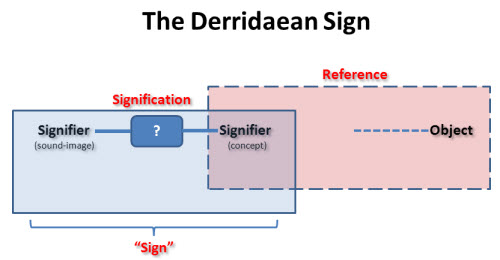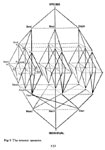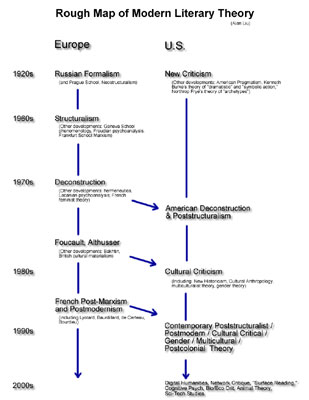| |
Class 14 Notes
Page history
last edited
by Alan Liu 8 years, 11 months ago
Preliminary Class Business
Finishing up From Last Class:
- Derrida on "play" and "game"


1. Deconstruction in the U.S.

- Jacques Derrida, Paul de Man, J. Hillis Miller (with Geoffrey Hartman): "The Yale School" of critics
Geoffrey Hartman, from "Preface" to Deconstruction and Criticism (by Harold Bloom, Paul de Man, Jacques Derrida, Geoffrey Hartman, J. Hillis Miller) (1979), pp. vii-viii:

"Deconstruction, as it has come to be called, refuses to identify the force of literature with any concept of embodied meaning and shows how deeply such logocentric or incarnationist perspectives have influenced the way we think about art. We assume that, by the miracle of art, the 'presence of the word' is equivalent to the presence of meaning. But the opposite can also be urged, that the word carries with it a certain absence or indeterminacy of meaning. Literary language foregrounds language itself as something not reducible to meaning: it opens as well as closes the disparity between symbol and idea, between written sign and assigned meaning.
Deconstructive reading does not present itself as a novel enterprise. There is, perhaps, more of a relentless focus on certain questions, and a new rigor when it comes to the discipline of close reading."
2. Paul de Man's "Shelley Disfigured" Essay
- prosopopoeia: fr. Gk. prosopon, mask, fr. pros + ops, in front of the face
Class 14 Notes
|
|
Tip: To turn text into a link, highlight the text, then click on a page or file from the list above.
|
|
|
Comments (0)
You don't have permission to comment on this page.